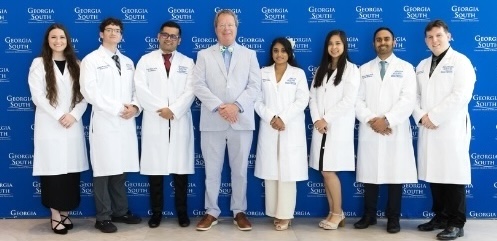County commissioners adopt freeport exemption
Published 5:31 pm Wednesday, June 28, 2017
THOMASVILLE — Thomas County is no longer one of seven Georgia counties without all freeport tax exemptions.
Thomas County voters approved the three-part freeport exemption in a 1986 referendum. One part of the exemption went into effect in 1991 at 100 percent of inventory. The other two were enacted in a unanimous Tuesday vote by county commissioners.
In asking commissioners to enact the other two freeport exemptions, Thomasville Payroll Development Executive Director Shelley Zorn said Thomas County is competing with neighboring states for industry.
Zorn asked the board to approve all freeport exemptions at the 100 percent level.
Commissioner Mark NeSmith, a Thomasville Payroll Development Authority member, said the absence of all freeport exemptions puts Thomas County at a disadvantage when an industry is looking at places to locate.
Newly-approved freeport exemptions go into effect on Jan. 1, 2018.
Categories are:
• Inventory of good in process of manufacture or production that include all partly finished goods and raw materials held for direct use or consumption in the ordinary course of the taxpayer’s manufacturing or production business in Georgia. The exemption applies only to tangible personal property that is substantially modified, altered or changed in the ordinary course of the taxpayer’s manufacturing, processing, or production operation in the state.
• Inventory of finished goods manufactured or produced in Georgia in the ordinary course of the taxpayer’s manufacturing or production business when held by the original manufacturer or producer of the finished goods. The exemption provided is for a period not exceeding 12 months from the date the property is produced or manufactured.
• Inventory of finished goods which, on the first day of January, are stored in a warehouse, dock or wharf, whether public or private, and are destined for shipment to a final destination outside Georgia and inventory of finished goods shipped into Georgia from outside the state and stored for trans-shipment to a final destination outside the state. The exemption is for a period not exceeding 12 months from the date the property is stored in the state. All property claimed to be exempt under provisions of this subsection are designated as being “in transit” upon the official books and records of the warehouse, dock or wharf, whether public or private, where the property is being stored. Official books and records must contain a full, true and accurate inventory of all such property, including the date of the receipt of the property, the date of withdrawal of the property, the point of the origin of the property, and the point of final destination of the same, if known. The official books and records of any such warehouse, dock, or wharf, whether public or private, pertaining to “in transit” property, must be at all times open to the inspection of all taxing authorities of the state and of any political subdivision of the state.
The last category has been in effect in Thomas County since November 1991 at the 100 percent exemption level.
Zorn told commissioners Thomas County needs every competitive edge in drawing industry.
In reference to freeport exemptions, on Wednesday, NeSmith said, “That’s one of the questions every potential industry wants to know if they don’t already know it.”
Enacting all three freeport exemption categories will allow local industries to have more cash to hopefully put into expansions and hiring more employees, the commissioner added.
“It puts you in an attractive position to draw industry,” NeSmith said.
With implementing all three categories of freeport at the 100 percent level, Thomas County would lose about $250,000 annually in tax revenue, Thomas County Chief Appraiser Daniel Stokes said.
To compensate, County Manager Mike Stephenson said county government has stabilized employee retirement and other personnel costs, the tax digest is seeing growth and sales tax is up slightly.
“There will be no tax increase this year or next year,” Stephenson said.





